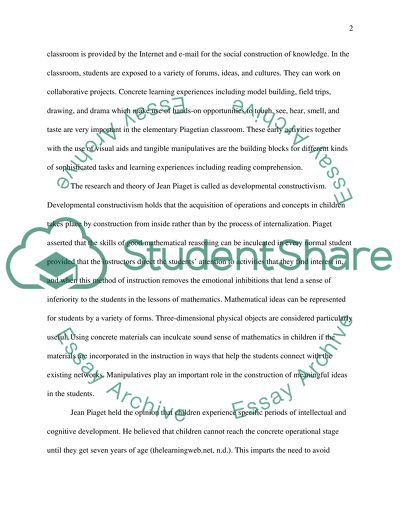Cite this document
(“How Jean Piaget's work has influenced instruction and curriculum Essay”, n.d.)
Retrieved from https://studentshare.org/psychology/1650017-how-jean-piagets-work-has-influenced-instruction-and-curriculum-development
Retrieved from https://studentshare.org/psychology/1650017-how-jean-piagets-work-has-influenced-instruction-and-curriculum-development
(How Jean Piaget'S Work Has Influenced Instruction and Curriculum Essay)
https://studentshare.org/psychology/1650017-how-jean-piagets-work-has-influenced-instruction-and-curriculum-development.
https://studentshare.org/psychology/1650017-how-jean-piagets-work-has-influenced-instruction-and-curriculum-development.
“How Jean Piaget'S Work Has Influenced Instruction and Curriculum Essay”, n.d. https://studentshare.org/psychology/1650017-how-jean-piagets-work-has-influenced-instruction-and-curriculum-development.


